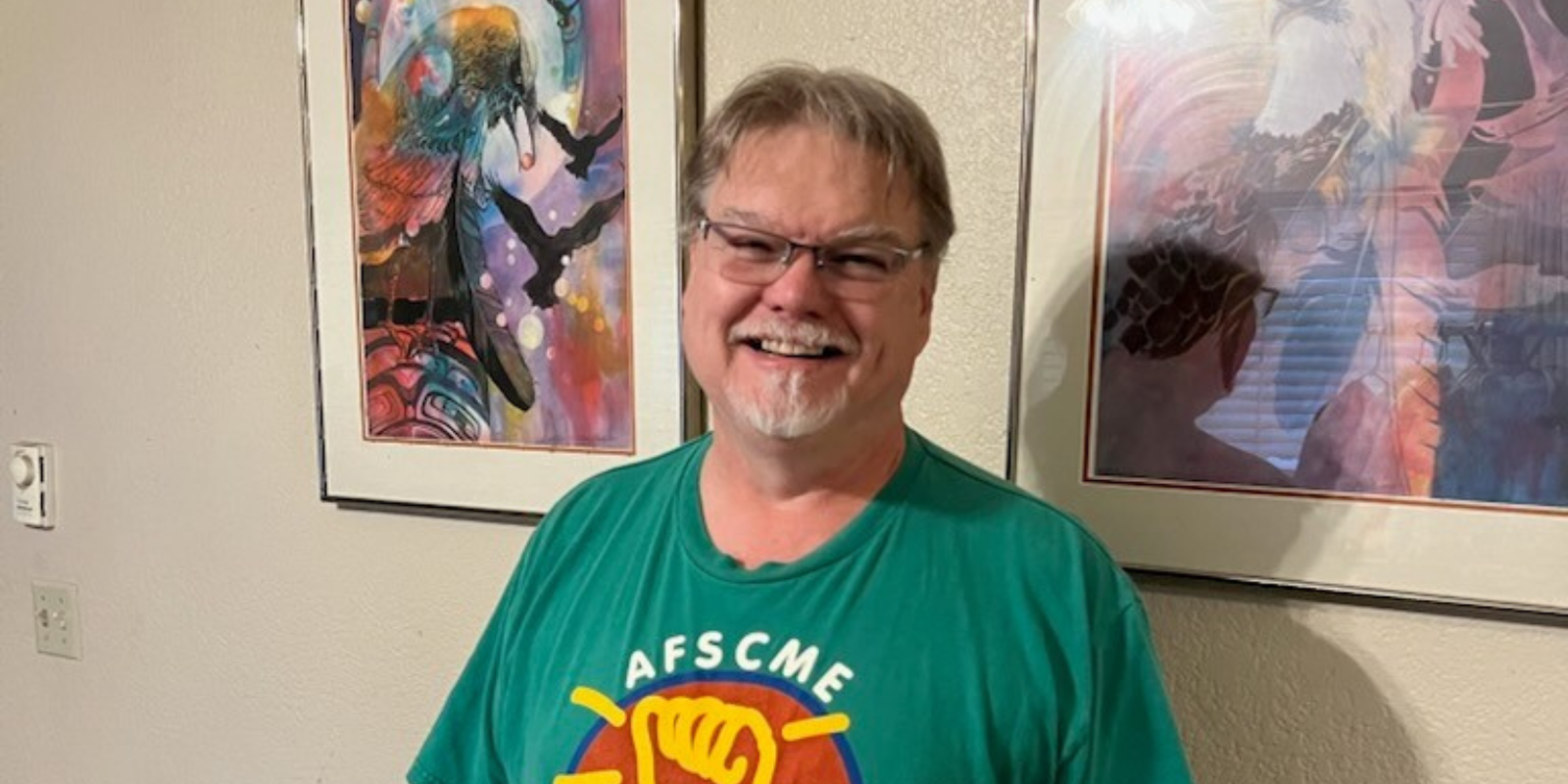Dr. Jim Hulse is a psychologist and longtime AFSCME Local 793 (WFSE) member at Western State Hospital in Lakewood, Washington, where he’s worked for more than a decade.
He is deeply concerned about what the government shutdown will mean for the patients that he serves, for his co-workers — who are already stretched to the breaking point — and for public safety.
Dr. Hulse is one of only six psychologists responsible for treating hundreds of patients who are involuntarily committed to inpatient psychiatric treatment. Nearly all of those patients are what’s known as “forensic” patients.
They have been arrested for committing a crime but have been found incompetent to stand trial and referred for mental health treatment.
Sent by the court to Western State Hospital for a period of months, in order for these patients to be released from the hospital, they need to meet a set of criteria.
Dr. Hulse explains: “[The patients need to say] ‘I’m going to take my meds. I’m not going to drink any alcohol or any street drugs. I’m not going to tear up property or hurt myself or others.’”
The cornerstone of treatment, Hulse says, is a patient’s willingness to take their medication.
“The number one thing for community reintegration for patients is access to medication,” says Dr. Hulse. “A vast majority of patients left to their own devices will not take the meds. The illness doesn’t want to be treated.”
And that’s why the government shutdown makes Hulse’s job even more difficult than it already was.
Communities at the breaking point
Community mental health centers (CMHCs) cover every square inch of the U.S. and are responsible for monitoring Dr. Hulse’s patients when they are released from Western State Hospital.
But states, counties, cities and towns are already facing budget shortfalls. Now, the shutdown will strip them of even more resources. And that will damage a critical link in the chain of patients’ treatment — both the community mental health centers and the army of caseworkers who keep them running.
“CMHCs are expected to monitor these people,” Hulse says. “They’ll get medication and case management services. The whole goal is to get people oriented for a year of doing the right thing every day.”
But the shutdown, which was caused by the president and his yes-men and women in Congress to protect massive tax breaks for billionaires and greedy corporations they passed in the so-called “Big Beautiful Bill,” will starve those community mental health centers of the resources they need to monitor and treat patients.
Dr. Hulse knows that this will lead to higher crime and increased recidivism. And it will push mental health professionals like him to the brink, as they — along with the rest of the country — face this health care crisis.
“This month alone, I’ve already worked 45 extra hours of overtime,” says Dr. Hulse.
That is why AFSCME members like Dr. Hulse are urging Congress to fund public services, lower health care costs, and protect federal workers.
When our jobs and communities are under attack, we have to take a stand.
